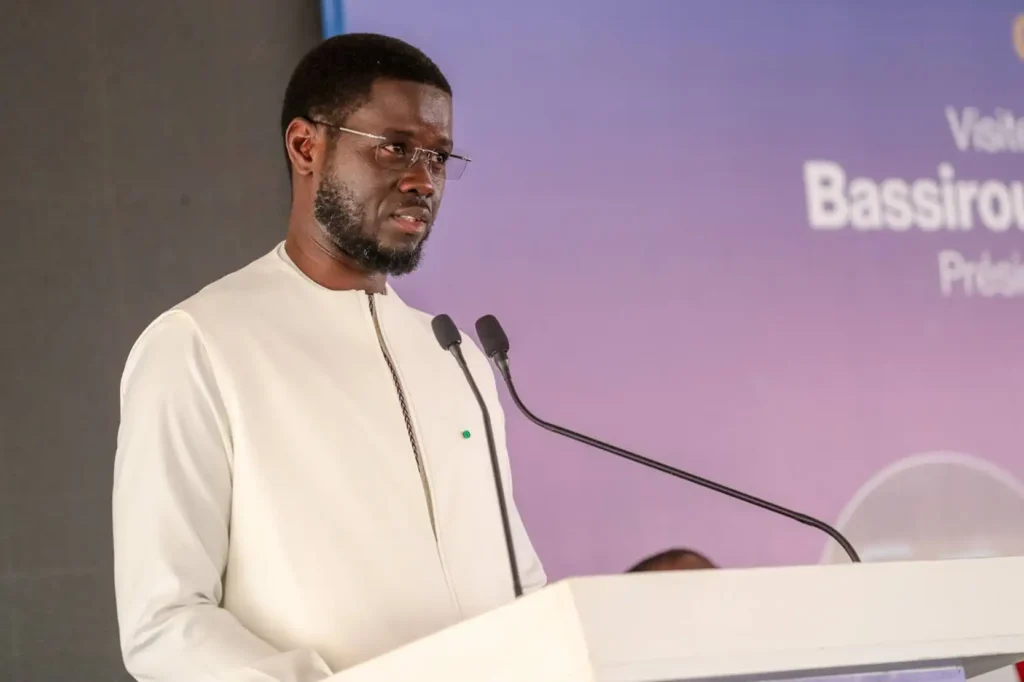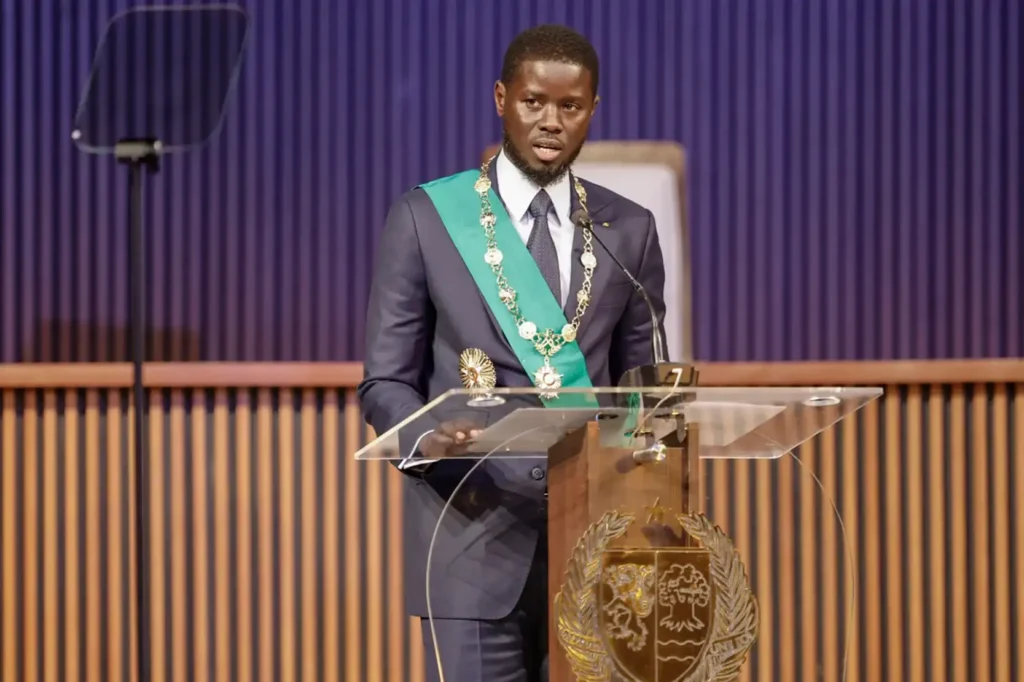Explore Senegal’s transformative Diamniadio Vaccine Center, a beacon of health sovereignty and innovation. Producing 300 million doses annually, this state-of-the-art facility reduces vaccine dependency and bolsters regional health resilience.
Introduction to Diamniadio Vaccine Center:
Senegal has made a historic leap in its journey toward achieving health and pharmaceutical independence with the inauguration of the Diamniadio Vaccine Center. On December 13, 2024, President Bassirou Diomaye Faye officially opened this groundbreaking facility, which symbolizes Senegal’s commitment to advancing public health and achieving regional vaccine autonomy. This significant development was undertaken as part of the ambitious MADIBA project, which stands for “Manufacturing in Africa for Disease Immunization and Building Autonomy.”
The inauguration coincided with the centenary celebrations of the Pasteur Institute of Dakar, highlighting the nation’s dedication to science, innovation, and excellence. This state-of-the-art facility aims to not only transform the healthcare landscape in Senegal but also position the country as a regional leader in addressing public health challenges. With advanced infrastructure and cutting-edge technology, the Diamniadio Vaccine Center represents a key step toward reducing dependence on imported vaccines and ensuring Africa’s pharmaceutical sovereignty.
The facility is designed to produce up to 300 million doses per year.
A Vision for Pharmaceutical Sovereignty:
The Diamniadio Vaccine Center is more than just a manufacturing unit—it’s a cornerstone of Senegal’s broader vision for health sovereignty and economic resilience. President Faye, during his inauguration speech, emphasized that this project aligns seamlessly with Senegal’s “Transformation Agenda 2050.” This agenda is a comprehensive roadmap aimed at building a prosperous, equitable, and self-reliant nation by focusing on universal health coverage, social equity, and the development of high-quality human capital.
“The Diamniadio Vaccine Center is at the heart of this vision,” said President Faye. “It represents a strategic investment for the future of health in Africa and is an integral part of our strategy for building a sovereign, just, and prosperous Senegal, based on the promotion of science, technology, innovation, and excellence.”
This bold vision is not just about achieving self-sufficiency in vaccine production but also about fostering regional collaboration and innovation. The center has been designed to meet the highest international standards, ensuring that vaccines produced here are of the highest quality and can meet both local and regional demands.

A State-of-the-Art Facility:
Spanning an impressive 5 hectares, the Diamniadio Vaccine Center is equipped with cutting-edge technology and infrastructure that positions it as a leader in vaccine manufacturing in Africa. The facility is capable of producing up to 300 million vaccine doses annually, addressing a wide range of public health needs. Its focus includes vaccines for COVID-19 and other endemic diseases, which have historically been significant health challenges for Africa.
This level of production capacity is a game-changer for the region, where less than 1% of vaccines consumed are currently manufactured locally. By significantly reducing dependence on imported vaccines, the Diamniadio Vaccine Center is poised to address the pressing issue of pharmaceutical insecurity and pave the way for greater health sovereignty across West Africa.
Building Resilience in Public Health:
The establishment of the Diamniadio Vaccine Center is not just about manufacturing vaccines; it’s about building resilience within Senegal’s healthcare system. The facility’s advanced technological platforms and operational efficiency will ensure that Senegal can respond swiftly and effectively to public health emergencies, such as pandemics and outbreaks of endemic diseases.
President Faye highlighted the transformative potential of this center during the inauguration. “With this regional vaccine manufacturing center, Senegal is positioning itself as a key player in the fight against epidemics and pandemics in Africa. Thanks to its cutting-edge technological platforms, this vaccine hub will be able to produce up to 300 million doses of vaccines per year to cover public health needs, not only for Senegal but also for the whole of West Africa,” he said.
Fostering Regional Collaboration:
A significant aspect of the Diamniadio Vaccine Center’s mission is fostering collaboration among African nations, institutions, and stakeholders. President Faye underscored the importance of active consultation and cooperation between vaccine producers, regulatory agencies, private sector entities, universities, and research centers across Africa. Such collaboration is essential for creating a sustainable pharmaceutical ecosystem that can meet the continent’s health needs.
“This vision of health sovereignty, supported by the Pasteur Institute of Dakar and its partners, is based on unprecedented regional and international collaboration,” said President Faye. He also acknowledged the critical role of financial and technical partners in making this vision a reality.
A Global Partnership for Health Sovereignty:
The Diamniadio Vaccine Center has garnered support from a wide range of international and regional partners. These partnerships reflect the global recognition of Senegal’s efforts to lead Africa’s health transformation. Key financial contributors include the European Union, the European Investment Bank, Germany (through KFW and GIZ), France (via AFD), Great Britain (through FCDO), Japan, the Islamic Development Bank, the World Bank Group, and the United States Development Bank (DFC). Additionally, philanthropic organizations such as the Bill and Melinda Gates Foundation, Mastercard Foundation, Open Society Foundation, Susan Buffet Foundation, and Elma Foundation have provided invaluable support.
Technical partnerships with organizations like the WHO, Africa CDC, UniverCells Group, BIONTECH, IAVI, and Batavia have ensured that the facility meets global standards for vaccine production. These collaborations highlight the importance of international solidarity in addressing global health challenges.

Impacts on Health and Economy:
The Diamniadio Vaccine Center’s impact extends beyond healthcare. By producing vaccines locally, Senegal will save significant costs associated with imports, enabling the country to reinvest these savings into other critical areas of public health and development. Moreover, the facility is expected to create jobs, foster innovation, and strengthen Senegal’s position as a regional hub for pharmaceutical manufacturing.
The center’s operations are also aligned with the goals of universal health coverage. By making vaccines more accessible and affordable, the facility will contribute to improving health outcomes and reducing health inequities in Senegal and neighboring countries.
A Model for Africa:
The Diamniadio Vaccine Center serves as a model for other African nations striving for pharmaceutical independence. It demonstrates how investments in science, technology, and innovation can address longstanding challenges in healthcare and contribute to broader socio-economic development. The center’s success will likely inspire similar initiatives across the continent, paving the way for a more self-reliant Africa.
Challenges and Opportunities:
While the Diamniadio Vaccine Center represents a significant achievement, it also comes with challenges. Ensuring a steady supply of raw materials, maintaining high production standards, and addressing logistical hurdles in vaccine distribution are critical issues that need to be managed. Additionally, fostering sustainable demand for locally produced vaccines will require effective public awareness campaigns and collaboration with healthcare providers.
However, these challenges also present opportunities. By addressing these issues proactively, Senegal can strengthen its healthcare infrastructure and build a resilient pharmaceutical industry that can serve as a model for other nations.
FAQ
Most frequent questions and answers
The center aims to produce vaccines locally, ensuring health sovereignty for Senegal and West Africa.
The facility is designed to produce up to 300 million doses per year.
The project received backing from international partners like WHO, the EU, and the Bill and Melinda Gates Foundation.
Conclusion:
The Diamniadio Vaccine Center marks a transformative milestone in Senegal’s healthcare journey, showcasing its commitment to health autonomy and innovation. By producing 300 million vaccine doses annually, the center addresses regional health challenges while reducing dependency on imports. Supported by global and regional partners, Senegal is charting a path towards a self-sufficient and resilient healthcare future for Africa.







